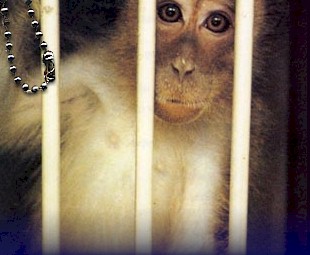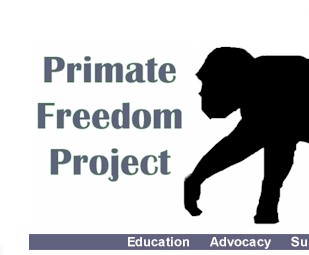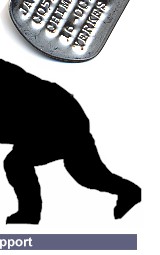The
Daily Utah Chronicle - News
Issue: 01/20/04
Precedent established in primate case
By Cara Wieser
The decision was unanimous.
The State Records Committee agreed Thursday that freshman Jeremy
Beckham
has the right to view protocol documents concerning primate
experimentation at the U.
The decision could set precedent for future requests from the public.
However, the U retained the right to redact, or black out, certain
information it claims proprietary. This will include researchers'
names,
addresses and contact information because of safety concerns. According
to Jack Taylor, director of the Animal Resources Center, one
investigator recently had an animal rights activist threaten him
at his
home.
However, Beckham worries the U could decide the majority of information
is proprietary. "What I may end up with are pages full of black
magic
marker," Beckham said.
Beckham requested the documents out of concern for the welfare
of the
primates currently housed at the U. His group, the Utah Primate
Freedom
Project, advocates the release of all primates and "an end
to all
primate experimentation on the U campus," according to handouts.
Conversely, the U is seeking to protect the confidentiality and
the
scientific discoveries of its researchers. Before the committee's
decision, U attorney Phyllis Vetter told Beckham that all records
would
be made public after the experiment results are published. Vetter
denied
Beckham's requests in a letter dated Sept. 18, 2003, stating that
the
records "contain confidential information regarding research
in
progress, the results of which have not been published."
However, Beckham was quick to point out that "Siegler has
already
published papers relating to his protocols that are currently being
funded," referring to U scientist Richard Siegler. He also
referred
committee members to the U's Research Handbook, which states, "The
Utah
Public Records Act provides for general access to proposals, awards
and
research documents such as interim and final reports and laboratory
notebooks."
Vetter commented on the handbook by saying, "We don't know
whose ideas
those are or where they came from."
One committee member, Betsy Ross, said "it seems there is
information in
a proposal that would be public." To encourage the U to redefine
what
is, or is not, proprietary, Ross said, "It would be fair for
the
committee to put a little more pressure on the U."
Other states already have guidelines for redacting and releasing
protocol information. Under the Freedom of Information Act, the
University of California at San Francisco must make all protocol
documents public.
According to UCSF researcher Stephen G. Lisberger, names of scientists
are always considered proprietary. More importantly, he said,
researchers "[have] to assume that everything they write could
potentially fall into the hands of the public."
Home Page | Our Mission | News
What Are Primate Freedom
Tags | Order Tag
Primate Research
Centers | Resources
|






